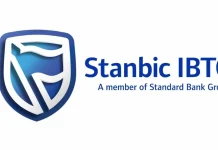Nigeria’s inflation rate is expected to climb further, with analysts and investment firms forecasting a year-end figure of 35.20% as persistent price instability continues to grip the economy.
A recent report by the National Bureau of Statistics (NBS) revealed that headline inflation surged to 34.60% year-on-year in November, up from 33.88% in October. Month-on-month, inflation held steady at 2.65%, as rising food costs counterbalanced a slight easing in core inflation.
Food inflation remained a significant driver, rising by 77 basis points to 39.93% year-on-year and 2.98% month-on-month in November. Price increases in staples such as maize, rice, palm oil, and tubers contributed to this uptick. Imported food inflation also soared to 42.29% year-on-year, driven by the depreciation of the naira and escalating global food prices.
The Food and Agriculture Organisation (FAO) reported a 5.7% year-on-year increase in its Food Price Index for November, marking the highest level since April 2023. This rise was primarily influenced by the elevated costs of vegetable oils and dairy products.
Core inflation, which excludes volatile food and energy prices, rose to 28.75% year-on-year in November, largely fueled by higher transportation costs and increased prices in the hospitality sector. However, the month-on-month core inflation rate eased to 1.83% from 2.14% in October, following a reduction in petrol prices by the Nigerian National Petroleum Corporation (NNPC).
Economic analysts at Coronation Research highlighted the adverse impact of inflation on businesses and households. “Rising production costs have translated into higher operating expenses for businesses, which are often passed on to consumers, eroding household purchasing power and dampening demand,” the report stated.
In response to the inflationary pressures, the Central Bank of Nigeria (CBN) has implemented several monetary tightening measures. These include an aggregate 875 basis points increase in the Monetary Policy Rate (MPR) to 27.50% in 2024, adjustments to the Cash Reserve Ratio (CRR), and frequent Open Market Operations (OMO) auctions to manage liquidity.
Despite these efforts, experts have called for stronger collaboration between fiscal and monetary authorities to tackle the underlying structural drivers of inflation effectively.
Looking ahead, Coronation Merchant Bank projects that Nigeria’s inflation rate will close at 35.20% year-on-year in December 2024, reflecting continued economic challenges and the urgent need for more comprehensive policy interventions.













